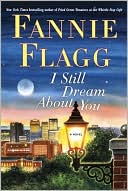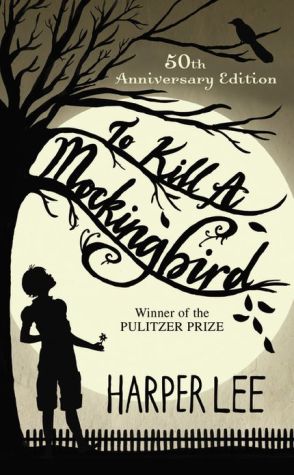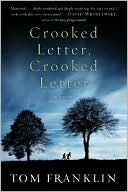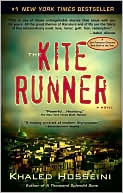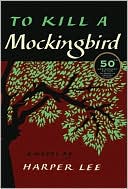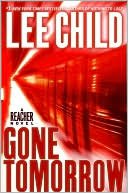Native Son
Widely acclaimed as one of the finest books ever written on race and class divisions in America, this powerful novel reflects the forces of poverty, injustice, and hopelessness that continue to shape out society.
Search in google:
Right from the start, Bigger Thomas had been headed for jail. It could have been for assault or petty larceny; by chance, it was for murder and rape. Native Son tells the story of this young black man caught in a downward spiral after he kills a young white woman in a brief moment of panic. Set in Chicago in the 1930s, Wright's powerful novel is an unsparing reflection on the poverty and feelings of hopelessness experienced by people in inner cities across the country and of what it means to be black in America.Gloria NaylorNative Son taught me that it's all right to have passion within your work.
Native Son\ Chapter One\ Book One: Fear\ Brrrrrrriiiiiiiiiiiiiiiiiiinng!\ An alarm clock clanged in the dark and silent room. A bed spring creaked. A woman's voice sang out impatiently:\ "Bigger, shut that thing off!"\ A surly grunt sounded above the tinny ring of metal. Naked feet swished dryly across the planks in the wooden floor and the clang ceased abruptly.\ "Turn on the light, Bigger."\ "Awright," came a sleepy mumble.\ Light flooded the room and revealed a black boy standing in a narrow space between two iron beds, rubbing his eyes with the backs of his hands. From a bed to his right the woman spoke again:\ "Buddy, get up from there! I got a big washing on my hands today and I want you-all out of here."\ Another black boy rolled from bed and stood up. The woman also rose and stood in her nightgown.\ "Turn your heads so I can dress," she said.\ The two boys averted their eyes and gazed into a far comer of the room. The woman rushed out, of her nightgown and put on a pair of step-ins. She turned to the bed from which she had risen and called:\ "Vera! Get up from there!"\ "What time is it, Ma?" asked a muffled, adolescent voice from beneath a quilt.\ "Get up from there, I say!"\ "O.K., Ma."\ A brown-skinned girl in a cotton gown got up and stretched her arms above her head and yawned. Sleepily, she sat on a chair and fumbled with her stockings. The two boys kept their faces averted while their mother and sister put on enough clothes to keep them from feeling ashamed; and the mother and sister did the same while the boysdressed. Abruptly, they all paused, holding their clothes in their hands, their attention caught by a light tapping in the thinly plastered walls of the room. They forgot their conspiracy against shame and their eyes strayed apprehensively over the floor.\ "There he is again, Bigger!" the woman screamed, and the tiny, one-room apartment galvanized into violent action. A chair toppled as the woman, half-dressed and in her stocking feet, scrambled breathlessly upon the bed. Her two sons, barefoot, stood tense and motionless, their eyes searching anxiously under the bed and chairs. The girl ran into a corner, half-stooped and gathered the hem of her slip into both of her hands and held it tightly over her knees.\ "Oh! Oh! " she waited.\ "There he goes!"\ The woman pointed a shaking finger. Her eyes were round with fascinated horror.\ "Where?"\ "I don't see 'im!"\ "Bigger, he's behind the trunk!" the girl whimpered.\ "Vera!" the woman screamed. "Get up here on the bed! Don't let that thing bite you!"\ Frantically, Vera climbed upon the bed and the woman caught hold of her. With their arms entwined about each other, the black mother and the brown daughter gazed open-mouthed at the trunk in the corner.\ Bigger looked round the room wildly, then darted to a curtain and swept it aside and grabbed two heavy iron skillets from a wall above a gas stove. He whirled and called softly to his brother, his eyes glued to the trunk.\ "Buddy!"\ "Yeah?"\ "Here; take this skillet."\ "O.K."\ "Now, get over by the door!"\ "O.K."\ Buddy crouched by the door and held the iron skillet by its handle, his arm flexed and poised. Save for the quick, deep breathing of the four people, the room was quiet. Bigger crept on tiptoe toward the trunk with the skillet clutched stiffly in his hand, his eyes dancing and watching every inch of the wooden floor in front of him. He paused and, without moving an eye or muscle, called:\ "Buddy!"\ "Hunh?"\ "Put that box in front of the hole so he can't get out!"\ "O.K."\ Buddy ran to a wooden box and shoved it quickly in front of a gaping hole in the molding and then backed again to the door, holding the skillet ready. Bigger eased to the trunk and peered behind it cautiously. He saw nothing. Carefully, he stuck out his bare foot and pushed the trunk a few inches.\ "There he is!" the mother screamed again.\ A huge black rat squealed and leaped at Bigger's trouser-leg and snagged it in his teeth, hanging on.\ "Goddamn!" Bigger whispered fiercely, whirling and kicking out his leg with all the strength of his body. The force of his movement shook the rat loose and it sailed through the air and struck a wall. Instantly, it rolled over and leaped again. Bigger dodged and the rat landed against a table leg. With clenched teeth, Bigger held the skillet; he was afraid to hurl it, fearing that he might miss. The rat squeaked and turned and ran in a narrow circle, looking for a place to hide; it leaped again past Bigger and scurried on dry rasping feet to one side of the box and then to the other, searching for the hole. Then it turned and reared upon its hind legs.\ "Hit 'im, Bigger!" Buddy shouted.\ "Kill 'im! " the woman screamed.\ The rat's belly pulsed with fear. Bigger advanced a step and the rat emitted a long thin song of defiance, its black beady eyes glittering, its tiny forefeet pawing the air restlessly. Bigger swung the skillet; it skidded over the floor, missing the rat, and clattered to a stop against a wall.\ "Goddamn!"\ The rat leaped. Bigger sprang to one side. The rat stopped under a chair and let out a furious screak. Bigger moved slowly backward toward the door.\ "Gimme that skillet, Buddy," he asked quietly, not taking his eyes from the rat.\ Buddy extended his hand. Bigger caught the skillet and lifted it high in the air. The rat scuttled across the floor and stopped again at the box and searched quickly for the hole; then it reared once more and bared long yellow fangs, piping shrilly, belly quivering.\ Bigger aimed and let the skillet fly with a heavy grunt. There was a shattering of wood as the box caved in. The woman screamed and hid her face in her hands. Bigger tiptoed forward and peered.\ "I got 'im," he muttered, his clenched teeth bared in a smile. "By God, I got 'im. "\ He kicked the splintered box out of the way and the flat black body of the rat lay exposed, its two long yellow tusks showing distinctly. Bigger took a shoe and pounded the rat's head, crushing it, cursing hysterically:\ "You sonofabitch!"\ Native Son. Copyright (c) by Richard Wright . Reprinted by permission of HarperCollins Publishers, Inc. All rights reserved. Available now wherever books are sold.
\ Gloria NaylorNative Son taught me that it's all right to have passion within your work.\ \ \ \ \ Publishers WeeklyWright's classic 1940 novel about a young African-American man who murders a white woman in 1930s Chicago is a truly remarkable literary accomplishment. Peter Francis James has never been better, bringing the character of Bigger Thomas to life in a profound and moving performance that is as touching as it is truthful. James's powerful baritone demands to be heard, captivating listeners with Wright's realistic portrayal of life in the inner city, capturing the mood of each and every scene. With moderate yet believable variations in tone and dialect for each of the characters, James ignites the collective imagination of his audience. Wright's novel is real, raw and brutally honest and James's reading follows suit. (May)\ Copyright © Reed Business Information, a division of Reed Elsevier Inc. All rights reserved.\ \ \ Sacred FireRichard Wright was born in 1908, thc first of two sons of a sharecropper. After publishing his first novel, Uncle Tom's Children, in 1938, Wright discovered to his alarm that "he had written a book which even bankers" daughters could read and feel good about. He swore that his next novel would be different. That book was Native Son, the story of Bigger Thomas's short and tragic life, which plumbs the blackest depths of human experience.\ Native Son is told in three parts —Fear, Flight, and Fate— which sum up, perfectly, Bigger Thomas's life. Badly in need of a job to help support his family, the ne'er-do-well Bigger goes to work as a driver for the Daltons, a rich white family. As he is pulled every which way by his mother, who wanted him to do the things she wanted him to do; by Mrs. Dalton, who wanted him to do the things she felt that he should have wanted to do; by Mary Dalton, the young mistress of the house, who challenged him to stand up for things he didn't understand; and by his need for independence and autonomy in the midst of a dependent situation—he missteps, accidentally killing Mary.\ Native Son is not an uplifting book with a happy Hollywood resolution. It has been criticized for its cardboard portrayal of black pathology and heavy-handed Marxist message. But the book is an absolutely gripping potboiler that is also intellectually provocative. It is on one level a seedy, simple story of an unsympathetic character meeting his fate at his own hands, and on another an illuminating drama of an individual consciousness that challenges traditional definitions of heroism, character, and integrity. Bigger was less a character caught in a specific criminal activity than he was a crime waiting to happen.\ \ \ \ \ \ Peter Monro JackThe story is a strong and powerful one and it alone will force the Negro issue to our attention. Certainly, Native Son declares Richard Wright's importance, not merely as the best Negro writer, but as an American author as distinctive as any of those now writing.-- Books of the Century; New York Times review, March 1940\ \


